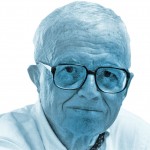
As a writer I’ve been told certain things I can never forget. Here’s one.
In 1989 I went to Montgomery, Alabama, to write about Maya Lin’s newly dedicated memorial to the men and women and children who were killed during the civil rights movement. Lin’s earlier Vietnam Memorial, in Washington, D.C., broke the mold of heroic statuary–an infantryman with a rifle, a general on a horse– and enabled Americans to heal through their fingertips the wounds of a war that had torn the nation apart. Her new monument was no less a tactile transaction between the fingers of the living and the names of the dead.
Commissioned by Morris Dees and his Southern Poverty Law Center, the dogged nemesis–then and now–of the Ku Klux Klan and other vengeful agents of racial hatred, the memorial occupied the plaza in front of the center’s new headquarters building. (Its previous building was burned down by the Klan.) Montgomery was the inevitable site–a place waiting for a monument to happen. It was the city where Rosa Parks’s refusal to give up her seat in the “whites only” section of a bus inspired the 13-month bus boycott that gave the civil rights cause its irreversible momentum. It was also where an old Negro congregation and its new young pastor–the Dexter Avenue Baptist Church and Martin Luther King Jr.–created a movement of nonviolent activism that neither could have created alone and that grounded their cause in the oldest Christian teachings.
Maya Lin’s memorial has two components. The first is a nine-foot wall, on which are carved the words
. . . UNTIL JUSTICE ROLLS DOWN LIKE WATERS
AND RIGHTEOUSNESS LIKE A MIGHTY STREAM
MARTIN LUTHER KING, JR.
That passage, attributed to the prophet King, who used it in his “I Have a Dream” speech, is actually from the prophet Amos. Lin eliminated the five words that preceded “until”–“We will not be satisfied.“ Water spills down the wall, over the words.
The second component is a circular tabletop, 12 feet in diameter, around whose perimeter, incised in the black granite, somewhat in the manner of a sundial, are 53 brief entries, chronologically arranged–from 13 NOV 1956 (SUPREME COURT BANS SEGREGATED SEATING ON MONTGOMERY BUSES) to 4 APR 1968 (MARTIN LUTHER KING, JR. ASSASSINATED. MEMPHIS, TN). Twenty of the entries denote landmark events of the movement; the rest record individual deaths, such as the bomb-explosion killing of four little girls in a Birmingham church and the murder of Emmett Till for whistling at a white woman. A thin film of water rises slowly out of the center of the table and flows over its surface, barely covering the names. Visitors to the memorial move slowly around the table, pausing to read and to touch the names under the water, often talking to each other. The monument moves to its own found rhythms.
At first, Maya Lin told me, she spent several months just thinking about the civil rights movement, “waiting for a form to show up“ and wondering if it ever would. “The discipline,” she said, “is to not jump too fast. If you jump to a form too quickly it won’t have the understood meaning you want for it.” Finally the day came for her to fly to Montgomery to inspect the site, and it was on the plane, reading a book called Eyes on the Prize, that she came upon the phrase about justice rolling down like waters and righteousness like a mighty stream.
“The minute I hit that quote,” she said, “I knew that the whole piece had to be about water.” But she didn’t anticipate the power that words combined with water would generate. “At the dedication ceremony,” she told me, “Emmett Till’s mother was touching his name beneath the water and crying, and I realized that her tears were becoming part of the monument.”
[See American Places, by William Zinsser.]

